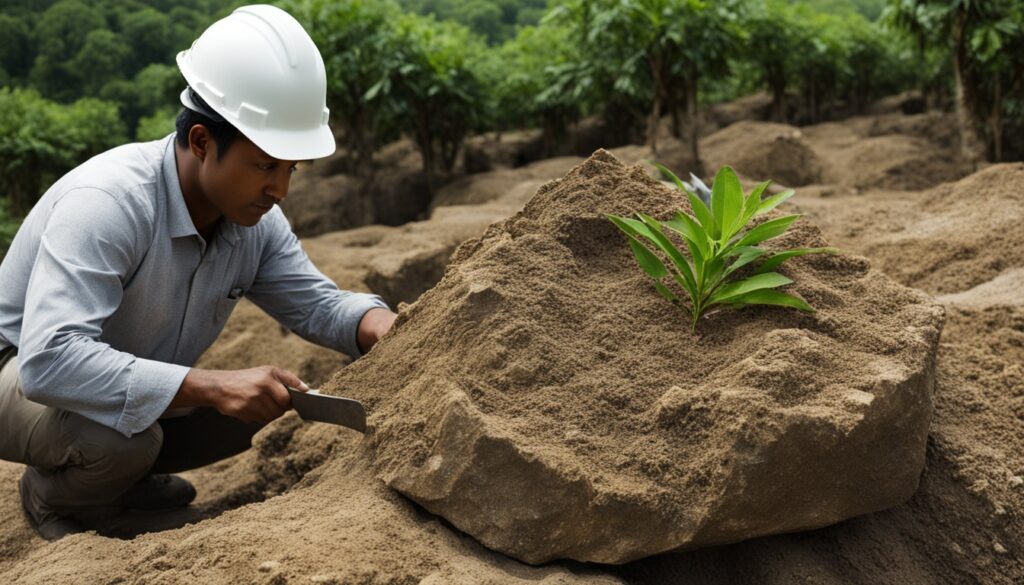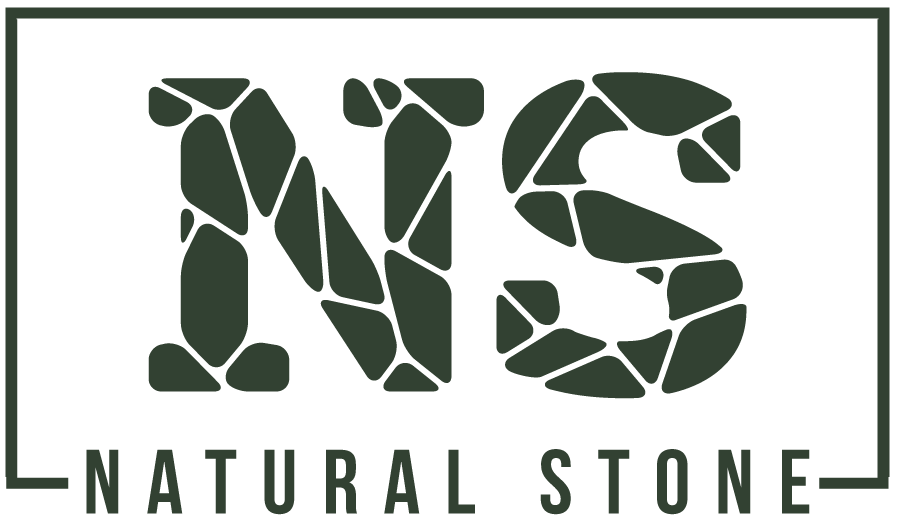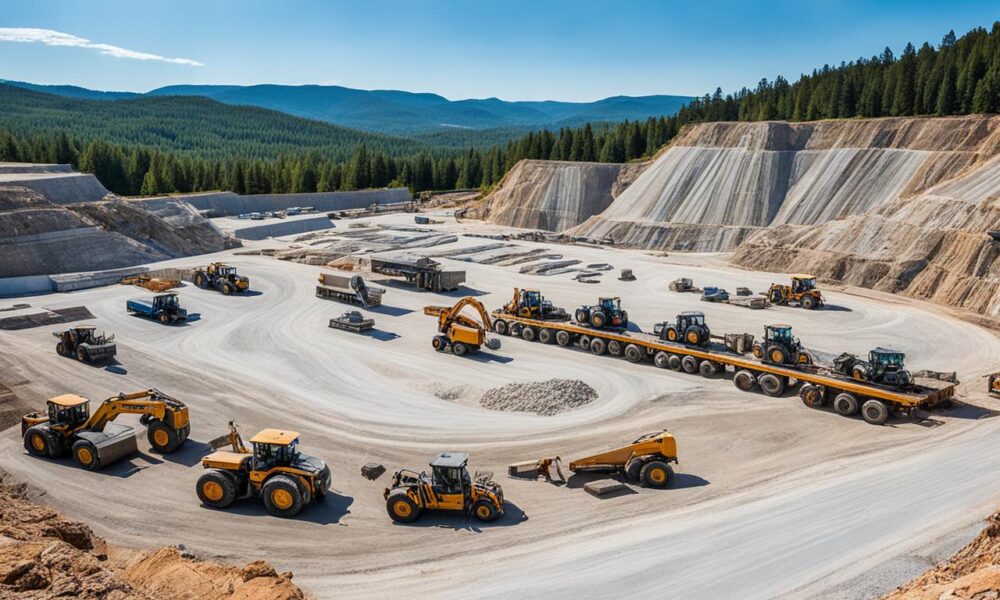Ethical Stone Sourcing: Supplier Selection Guide
Sourcing natural stone ethically is key for today’s businesses. It involves looking after human rights, work conditions, and the environment in the supply chain. This is a big part of being socially responsible and it can greatly affect a company’s success. The Ethical Trading Initiative (ETI) has put together guidelines to help companies make sure they’re getting their stone from places like Rajasthan, India, the right way.
When it comes to choosing suppliers, companies need to consider many things. This includes making sure workers are safe, paid fairly, and well taken care of. It’s also very important to avoid using child labor or making people work against their will. For example, there have been troubling reports about how workers are treated in Rajasthan’s stone quarries. This area supplies a lot of sandstone worldwide. The pressure is on for companies to improve these work conditions throughout the supply chain.
By focusing on ethical sourcing, businesses not only stay out of legal trouble but they also improve their image. They might even be able to grow their market share. The UK led the way in 2013 by making a plan to support ethical business and human rights. This shows how the world is putting more and more value on doing business the right way.
Key Takeaways
- Ethical Sourcing of Natural Stone is crucial for managing human rights and labor risks.
- 68% of stone imported into the United Kingdom originates from Asia, particularly India.
- Ethical sourcing includes ensuring fair wages, safe working conditions, and the avoidance of child labor.
- In 2013, the UK was the first to introduce a government action plan on business and human rights.
- Commitment to responsible sourcing enhances company reputation and market share.
Understanding Ethical Sourcing of Natural Stone
Ethical sourcing in natural stone is crucial for fair worker treatment and international labor standards. It involves keeping good labor rights and working conditions from quarries to processing plants. Natural stone mostly comes from places like Asia and India, facing labor standard challenges. So, ethical sourcing is more important than ever.
What is Ethical Sourcing?
Ethical sourcing means making sure the whole supply chain treats workers fairly and meets labor standards. For instance, stone quarries in Rajasthan have shown poor work conditions. This led stakeholders to demand better labor standards. It’s efforts like these that ensure natural stone is sourced sustainably and humanely, showing top business integrity.
Importance of Ethical Sourcing
Ethical sourcing is key to sustainable stone extraction and ensuring fair working conditions. In places like Rajasthan, India, stone is a big part of what the UK imports. Therefore, following the law and treating workers well is very important. Workers’ education on health and safety is improving. Plus, tools like the Ethical Stone Register help clients choose more ethical options.
Impact on Business Reputation
Choosing ethical natural stone sourcing can greatly boost a company’s reputation and market share. Firms with responsible sourcing programs saw a 20% rise in market share and brand value. Many stone processors now have ways for workers to report problems, enhancing transparency and fairness. This helps companies be more respected and trusted, which is good for their future.
Key Attributes of Ethical Stone Suppliers
Making sure a stone supplier does the right thing is key to the whole supply chain’s honesty. Ethical suppliers aim for great work standards and taking care of nature. They look after both worker health and the planet.
Commitment to Labor Standards
One big thing about ethical suppliers is how they treat their workers. They make sure everyone gets fair pay, works in a safe place, and has their rights respected. Sadly, child and forced labor are still problems in some places, especially in mining for certain gems like rubies, emeralds, jade, and silver. But ethical suppliers do not allow this. They put rules in place to keep workers safe and make sure they’re paid fairly.
- Certifications from organizations like the Natural Stone Institute or the Marble Institute of America show a supplier is ethical and cares about quality.
- Choosing lab-grown gemstones, such as Sterling Turquoise & Opal’s lab-created opals, means you’re supporting a no-exploitation policy for workers.
- Good suppliers have official certifications, rave reviews, and clear ways of showing where they get their stones.
Environmental Stewardship
Being good to the environment is just as important to ethical suppliers as looking after their workers. They use ways that won’t damage the land too much and that try to help the environment recover afterwards. This not only follows laws and is the right thing, but also wins them trust from customers.
- Choosing ethical means buying from places that care about the earth and help it heal after getting the stones.
- Seeing the quarries and samples can show you if a supplier really does care for the land.
- Because the U.S. gets so many semi-precious stones from other countries, it has to make sure they’re taken out of the ground the right way.
Table comparing Ethical vs. Non-Ethical Suppliers:
| Criteria | Ethical Suppliers | Non-Ethical Suppliers |
|---|---|---|
| Certifications | Certified by organizations like NSI, MIA | Lack certifications or minimal proof |
| Labor Standards | Adhere to fair wages, safe conditions | Often involve child or forced labor |
| Environmental Practices | Sustainable and minimal environmental impact | High environmental degradation due to poor practices |
| Transparency | Maintains transparent sourcing practices | Opaque or undisclosed sourcing methods |
Supplier Qualifications for Sustainable Stone Extraction
For sustainable stone extraction, suppliers need certain credentials and must follow strict environmental rules. These rules help make sure the extraction process doesn’t harm the earth. They also demand fair treatment for workers. Companies like Coldspring are leading the way in these efforts, showing how important ethical and green practices are.

Certifications and Accreditations
Supplier qualifications include getting the right certifications and accreditations. These are clear signs that a supplier is serious about sustainable extraction. For example, Coldspring was one of the first natural stone businesses to meet third-party sustainability standards. These certifications let designers pick certified stone for their projects. It helps meet eco-goals and earn green building points.
Compliance with Environmental Regulations
Following environmental rules is key for reducing harm from stone mining. Using tools like diamond wire saws is better for the land. Suppliers meeting the Natural Stone Sustainability Standard also promise to fix the land after they’re done. Companies with operations in many areas, like Coldspring, help by making it easier to buy locally. This cuts down pollution from transport.
| Supplier Qualification | Details |
|---|---|
| Industry Certifications | Validation of adherence to quality and sustainability standards through third-party verified certifications. |
| Sustainable Practices | Implementation of eco-friendly production methods, including the use of diamond wire saws. |
| Environmental Regulations | Strict compliance with environmental regulations to minimize the ecological footprint of extraction processes. |
| Reclamation Plans | Clear plans for environmental restoration after extraction activities. |
| Regional Operations | Reducing transportation impacts by facilitating regional purchasing. |
Looking for these supplier qualifications is crucial for making construction projects more sustainable. When looking for stone suppliers, buyers should check that they are not just certified but also truly eco-friendly. Opting for such suppliers is vital for protecting our natural resources.
Fair Trade Stone Suppliers: Ensuring Fair Wages and Working Conditions
Fair trade is key in getting natural stone ethically. It makes sure that Fair Trade stone suppliers meet strict rules. These rules make certain everyone gets fair pay and works safely. This covers the whole process, from the mines to where it’s cut.
The Ethical Trading Initiative (ETI) is working hard in this area. Since 2011, it’s had a group tackling issues in the stone trade. Members include big names like Beltrami and Marshalls. They’ve all pledged to make work better and make sure fair pay and safety are standard in the stone world.
Many stones coming into the UK are from Asia, mostly India (Stone Statistics, 2011). With so much stone coming from there, it’s vital to check that ethical practices are being followed. This is why checking Fair Trade suppliers is so important. The ETI and UN are backing this up with their own steps, ready to defend worker rights and ethical sourcing.
Looking into Fair Trade stone suppliers includes making sure workers are paid well and safe. Almost every big brand globally is doing its part. They watch over human rights, work conditions, and the environment in their chains.
The UK’s move in 2013 was a big deal. Their plan offered clear ways for companies to include human rights in their work.
By focusing on good pay and safe work, companies do the right thing. They also build trust with their customers. The push for ethical products is making companies more open and responsible in how they source materials.
Evaluating Environmental Standards in the Stone Industry
It’s crucial to check on environmental standards in the stone industry. This helps make sure we’re sourcing stones in sustainable and ethical ways. It aims to protect our planet and encourages the right ways to get stones.
Companies are trying hard to have less impact on the environment. They’re also working on fixing any damage to the land they have used.
Minimizing Environmental Impact
We can lower the harm we do by looking closely at how stones are mined. This means using machines that are better for the environment, lessening dust, and reusing water. The industry has set up rules, like the ANSI/NSI 373, to achieve this. This is all to make sure getting stones doesn’t hurt the planet too much.
Using stones from nearby can cut down on the harm. Buying stones from overseas can take a long time, between 16 to 24 weeks. But getting them locally takes only 5 to 7 days. Choosing local stones means our projects are done faster and are better for the planet.
Rehabilitation of Mining Sites
After mining, it’s important to fix the land. This means putting soil back, planting local plants, and keeping the land safe and full of life. A great example is how some types of granite are used for important things, like memorials. They show that the land can be just as good or better than before.
Helping the environment makes people happy and is right for the planet. The same care goes for other building materials. There are standards, like the NSF/ANSI ones, for things like floors and furniture. They make sure these materials are used in the best possible way for the planet.
Looking closely at how we mine and making efforts to do it better is key. This, along with caring for the land after mining, is essential for getting stones the right way.
| Memorial | Granite Type | Specifications |
|---|---|---|
| Franklin Delano Roosevelt Memorial | Carnelian® granite | 12-foot-high walls |
| Korean War Memorial | Academy Black® granite | Wall |
| Victory Memorial Drive | Lake Superior Green® granite | 4,500+ square feet |
| Collier County Freedom Memorial | Carnelian® granite | 13-foot-tall by 40-foot-wide waving flag |
Ethical Sourcing of Natural Stone: What to Look for in a Supplier
To source natural stone ethically, look for key signs in suppliers. It’s vital to choose companies that follow ethical sourcing guidelines. This should include having clear supply chains and being open to supplier audits. Also, forming strong relationships with suppliers encourages better ethical practices over time.

Transparent Supply Chains
A supplier’s clear supply chain is crucial for ethical stone sourcing. Transparency allows all supply chain steps to be seen and checked for ethical standards. For instance, most stone in the UK comes from Asia, mainly India. This makes it very important to see the process from quarry to market.
Supplier Audits and Assessments
Supplier checks through audits are essential for checking ethical standards. Bad working conditions in India’s quarries show why we need these strong standards. Audits make sure workers and the environment are treated right at every step.
Building Long-term Partnerships
Working with the same suppliers for a long time leads to better ethical practices. This is because both suppliers and buyers focus on doing things right. For example, Apex Stone is known for its top-quality, responsibly sourced products. Such partnerships create trust and ensure high ethics for everyone involved.
| Key Ethical Sourcing Criteria | Examples and Benefits |
|---|---|
| Transparent Supply Chains | Open disclosure of practices, enhanced trust, regulatory compliance |
| Supplier Audits | Verification of working conditions, compliance with labor standards |
| Long-term Partnerships | Mutual trust, continuous improvement, strong business relationships |
The Ethical Trading Initiative highlights the importance of ethical sourcing by promoting workers’ rights and developing guidelines for responsible sourcing from regions like Rajasthan, India.
Managing Risks and Ensuring Compliance
In the world of global supply chains, efficiently managing risks is key for business sustainability. This is especially true in the stone industry. Companies often face challenges when sourcing materials from developing countries.
Legal Risks and Compliance
It’s key to ensure legal compliance to avoid big fines. There are issues in Rajasthan with working conditions. And a lot of stone comes from India and China. This shows why following international labor laws is so important.
The UK’s 2013 plan on business and human rights helps companies know what to do. It guides them on how to include human rights in their work.
Reputational Risk Management
Keeping a good reputation is crucial for a company to succeed. Watching over where materials come from helps. This way, child labor, forced labor, and harm to the environment are avoided.
The Ethical Trading Initiative (ETI) helps make labor conditions better. It shows how working together can change whole industries. By sticking to the ETI Base Code, companies ensure good jobs and fair pay.
Being proactive about risks and following strong laws and ethics protects a company’s name. It also makes the business more trusted. By being careful and always looking to be better, companies can deal with the tough parts of global sourcing. At the same time, they stay true to their ethical values.
Effective Communication and Continuous Improvement
Effective communication is key in the stone industry’s continuous improvement. It ensures that everyone knows what’s expected and meets those expectations. This fosters a better relationship between companies and their suppliers.
Engaging with Suppliers
Engaging with suppliers helps a lot in improving things all the time. Talking openly and having regular meetings make sure everyone’s on the same page. This approach makes operations smoother and more ethical.
Feedback Mechanisms
Having good feedback systems is crucial for keeping suppliers up to the mark. Giving frequent feedback helps them see where they can do better. It creates a culture where everyone is focused on learning and growing.
Performance Monitoring
Keeping an eye on performance is key for maintaining high standards. Using the right tools to watch how suppliers are doing helps find areas for improvement. This, combined with clear and timely feedback, ensures the industry keeps getting better.
Conclusion
Thinking about where our stones come from shows us we need to be careful. A good stone industry focuses on how they get the stones and how they make them. Suppliers should care a lot about treating their customers well. This makes buying stones an easy and good experience.
It’s also great if the supplier is close to where the stones will be used. This saves on shipping and makes deliveries faster. Good communication is super important. Suppliers who answer questions quickly and keep you updated build trust.
It’s smart to balance the price you pay with the quality you get. Cheaper stones might not be as good. When picking a supplier, check what others say about them online. This helps you know if the stones and service are good.
To wrap up, getting stones the right way is something we all should care about. It’s important for workers, the Earth, and having fair rules. As we all want to know where products come from, companies need to work harder to be honest and fair. By working together, we can make sure the stone industry is better for everyone.



